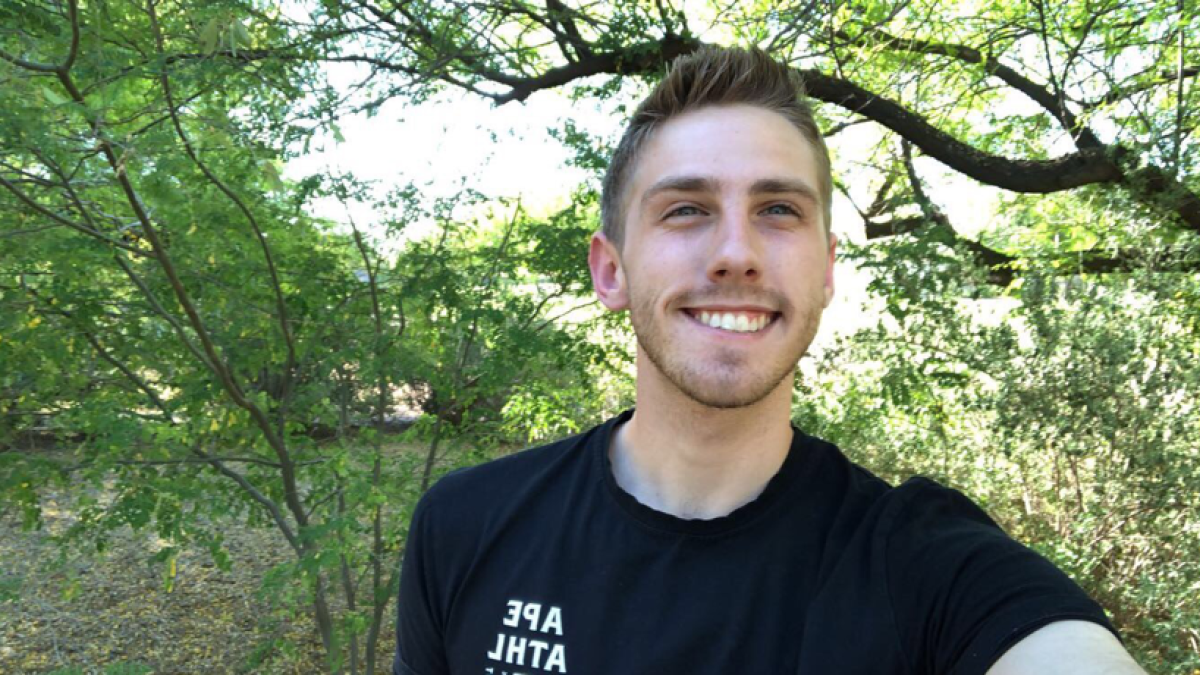Receiving help led applied biological sciences graduate to help others

William Harper, an outstanding graduate in applied biological sciences at ASU's Polytechnic campus, said he found Professor Marianne Moore's dedication to her students and her research on bat immunology especially inspiring.
Editor’s note: This is part of a series of profiles for spring 2019 commencement.
It was an early exposure to medical issues in William Harper’s family that sparked Harper’s interest in majoring in applied biological sciences and pursuing a career in medicine: “It made me extremely curious to know how the human body works, why it fails to work, and how to fix it,” he said.
He completed his degree in the College of Integrative Sciences and Arts at Arizona State University's Polytechnic campus and will be among the thousands of students graduating on May 6 looking to make the world a better place.
Harper, who is from Modesto, California, chose to attend ASU because of the resources available to propel his career.
“ASU was a good choice for financial reasons,” he noted. “I was also offered a position in Barrett [The Honors College], which seemed like a good opportunity to work with professors and become better prepared for medical school.”
While at ASU, Harper also took advantage of community opportunities in the East Valley to support his career. He interned in internal medicine and with the Banner MD Anderson Cancer Center and Banner Gateway Medical Center's Emergency Department.
Along his ASU journey, Harper learned a simple but unexpected lesson that has changed his perspective about education. It’s one that bodes well for the kind of integrative medical practitioner he will become.
“It seems simple, but a professor my freshman year made me realize that taking classes is not just about passing the class,” he reflected. “I have come to believe education is about personally integrating the information presented in order to enhance your understanding of the world, to be a more competent individual in your career and your life.”
Harper recently shared more with ASU Now about the opportunities he has taken advantage of at ASU and his plans for the future.
Question: Which professor taught you the most important lesson while at ASU?
Answer: I think I learned the most important lessons from Dr. Marianne Moore by observing her immense dedication to her research and her students. The patient but unfailingly enthusiastic attitude she displays in her study of bat immunology, and in her assistance to students, has shown me that picking a career you love makes all the work worth it.
Q: What was your favorite spot on Polytechnic campus, whether for studying, meeting friends or just thinking about life?
A: The library was probably the spot I would most consider my home base on campus. I actually worked there for over a year and still go in there when I need a minute to put life together or hours to dedicate to an assignment.
Q: What’s the best piece of advice you’d give to those still in school?
A: Make the most out of your education for you! Treat new concepts as potentially vital tools for your pursuit of the fields that interest you most.
Q: What are your plans after graduation?
A: I will be participating in research and applying to medical school.
Q: If someone gave you $40 million to solve one problem on our planet, what would you tackle?
A: I would give funding to labs working to understand and engineer novel treatments for neurodegenerative diseases.
Written by Imani Stephens, class of 2019, Walter Cronkite School of Journalism and Mass Communication; student marketing assistant, College of Integrative Sciences and Arts.
More Science and technology

ASU to host 2 new 51 Pegasi b Fellows, cementing leadership in exoplanet research
Arizona State University continues its rapid rise in planetary astronomy, welcoming two new 51 Pegasi b Fellows to its exoplanet…

ASU students win big at homeland security design challenge
By Cynthia GerberArizona State University students took home five prizes — including two first-place victories — from this year’s…

Swarm science: Oral bacteria move in waves to spread and survive
Swarming behaviors appear everywhere in nature — from schools of fish darting in synchrony to locusts sweeping across landscapes…

